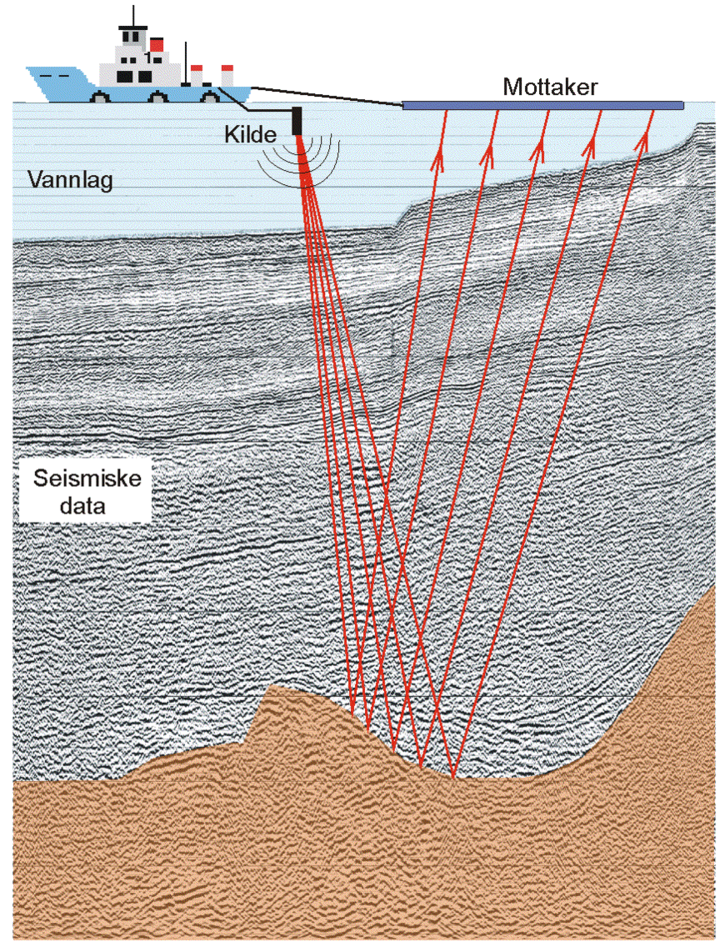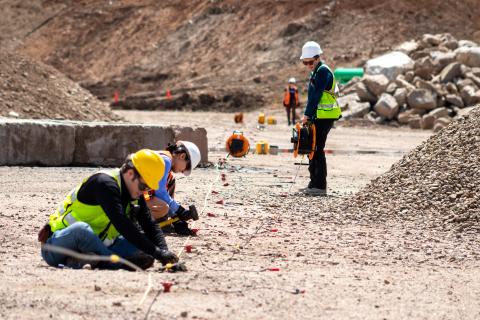All Categories
Featured
Table of Contents
Geophysical Services in Attadale Australia 2021

Other possible geophysicist majors that aren't geophysics or geoscience consist of: Climatic sciences and meteorology Chemical and physical oceanography Earth science Environmental science Hydrology and water resources science Materials science By earning any geophysicist degree, and by taking the needed geology courses, you ought to certify for an entry-level position as a geoscientist or geophysicist.
Eventually, trainees must learn: a branch of geology that takes a look at the different elements of minerals, consisting of chemical structure, internal crystal structure, and physical properties. the study of rocks and the procedures and conditions that form and transform them gradually. There are a few neighborhoods in this branch of geology, consisting of igneous, metamorphic, and sedimentary rocks.

This field takes a look at structural rock features such as cleavage, faults, joints, and little folds. They need to likewise discover the computer skills needed to: evaluate data create digital models and maps operate geoscientists' software Trainees must likewise make the most of all chances to acquire real-world experience. Aspiring geophysicists must expect to spend time knowing: in the class in the field in laboratories Certainly, abilities taught in the classroom are really essential for striving geophysicists.
Geophysical Surveys in Westfield Aus 2021
For example, geoscientists spend a great deal of their time outside when working in the field, so they need to have "outside skills" like camping and operating boats, aircraft, and other vehicles. Since they spend a lot time in remote locations, it's important that geophysicists likewise have the physical endurance to carry required equipment on their walkings to locations of study.
The job uses: a high median and top profits a high rate of individual complete satisfaction among geophysicists low work stress positive job outlook More details on revenues potential and job outlook is detailed listed below. For trainees seeking to land an entry-level role as a geoscientist or geophysicist, it takes four years, or the time required to finish a bachelor's degree in geophysics or an associated discipline.
Some research positions in geophysics need postgraduate degrees. Likewise, if you prepare to teach at a college or university, you need to earn a Ph - Geophysical Surveying And Mapping Services (Geology ... in Oz 2023. D. in geophysics or a related field. The time it requires to earn a Ph. D. varies by organization and program, but it usually takes 4 to six years beyond the bachelor's degree.
Geophysical Survey Requirements In California Waters in Langford Western Australia 2020
Many companies require prospects to have a bachelor's degree in geophysics or a closely related discipline for all entry-level positions. And, in some cases, companies require a master's degree. As an outcome, there's no method around the degree requirements for ending up being a geophysicist. The majority of employers will anticipate or require a practicing geologist to be licensed for positions beyond those at the entry level.
Presently, 31 states need licensing for geologists, although licensing is not always required, particularly for entry-level work. The states that do problem licenses use the Fundamentals of Geology Exam (FGE), which is administered through the National Association of State Boards of Geology (ASBOG). Now that you know which degree for geophysicist jobs you require, you'll require to land a job, and it's important to discover just how much cash you can make in this career.
According to BLS, the mean annual wage for geoscientists is $93,580. According to BLS, particular markets provide higher salaries for geoscientists, and in some cases, they offer higher-than-average profits.
Geophysical Surveying And Mapping Services (Geology ... in Cardup Western Australia 2022
In reality, mining, quarrying, and oil and gas extraction uses over $32,000 more annually than the typical yearly wage for this profession. The federal government, too, offers over $10,000 more in revenues than the national average for geoscientists. In addition to industry type, geographical location can significantly impact revenues for this occupation.

The top-paying states and their annual mean wages, according to the BLS, include: Texas $166,720 Oklahoma $149,630 Pennsylvania $120,590 Hawaii $120,130 Colorado $107,260 These 5 top-paying states offer much higher salaries than the average for this occupation. Earnings for geoscientists in Texas are over $73,000 higher than the nationwide average.
It needs to come as no surprise that the majority of these high-paying locations are in Texas and Oklahoma, but some are discovered in California, Louisiana, and Colorado. The top 10 highest-paying metro locations for geoscientists are: Houston-The Woodlands-Sugar Land, Texas: $188,400 Tulsa, Oklahoma: $186,490 Midland, Texas: $167,040 Odessa, Texas: $147,080 Oklahoma City, Oklahoma: $145,350 Bakersfield, California: $130,080 Urban Honolulu, Hawaii: $124,470 New Orleans-Metairie, Louisiana: $121,030 Washington-Arlington-Alexandria, DC, VA, MD, WV: $120,180 Denver-Aurora-Lakewood, Colorado: $116,910 For some geoscientists and geophysicists, living in a metro city is not as appealing as residing in a smaller sized community.
Latest Posts
Geophysicist Jobs in North Perth Australia 2021
Geophysical Survey Definition in Warnbro Western Australia 2021
What Is Geophysics? in Carlisle Australia 2020